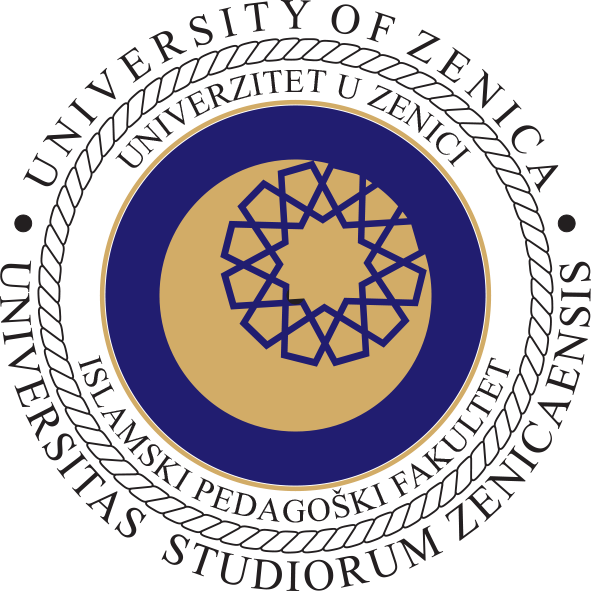GOOD WATER PILGRIMAGE NEAR FOČA
Good Water near Foča is the first pilgrimage in the Calendar of Marking Special Dates and Events by the Takvim of the Rijaset of the Islamic Community in Bosnia and Herzegovina. The author of the current paper aims to explain all aspects of the Good Water Pilgrimage, from introducing constituent elements of the Pilgrimage and analyzing folk tales a...
By Elvir Duranović
STRATIFICATION OF THE ARABIC LANGUAGE
Language accompanies people in time and space, but also in all their social environments and professional activities, which affects the language and leads to its stratification based on all these grounds, since various environments impose different language varieties we use to communicate. The extent to which a language is stratified is conditioned...
By Amrudin Hajrić
THE RECEPTION OF THE QUR’AN AND HADITH ENCOURAGEMENT FOR SCIENCE DEVELOPMENT IN THE CLASSICAL AND MODERN ISLAMIC WORLD
The aim of the current paper is to compare the reception of the Qur’an and Hadith texts related to science in the classical and modern world of Islamic culture. For this purpose, we have made the reinterpretation of certain texts related to science, within the constituent sources of Islam, the Qur’an and the Sunnah of Muhammad s.a.w.s., on the one ...
By Muamer Neimarlija
THE FUNCTION OF THE SEMANTIC FIELD OF MOTION VERBS IN PROMOTING THE QUR’ANIC INTENTIONS
Verbs, as the most important open word class, and prepositions, holding the same status among closed classes, are involved into particular syntactic-semantic relations in the Arabic language. Despite that, verbs and prepositions, as meaningful units, have been treated separately in scientific analyses. Relevant classic grammar texts do not offer th...
By Zehra Alispahić
THE COUNSELOR PERSPECTIVE ON THE ROLE OF PSYCHOSOCIAL CONSULTATION IN THE TREATMENT OF PERSONS SUFFERING FROM SCHIZOPHRENIA
In contrast to the traditional patocentric practice of treating psychotic disorders including schizophrenia, in the modern mental health concept a bio-psycho-social approach is emphasized, being characterized as comprehensive, integrative and above all humane. Psychosocial counseling of schizophrenic patients as a necessary form of intervention occ...
By Elma Begagić, Inela Šehić-Torlaković, Almira Isić-Imamović
THE RECEPTION OF THE QUR’AN AND HADITH ENCOURAGEMENT FOR SCIENCE DEVELOPMENT IN THE CLASSICAL AND MODERN ISLAMIC WORLD
The aim of the current paper is to compare the reception of the Qur’an and Hadith texts related to science in the classical and modern world of Islamic culture. For this purpose, we have made the reinterpretation of certain texts related to science, within the constituent sources of Islam, the Qur’an and the Sunnah of Muhammad s.a.w.s., on the one ...
By Muamer Neimarlija
TESAWWUF AS A METHOD OF SPIRITUAL EDUCATION
Tesawwuf is an authentic Islamic science like fiqh, tafsir, hadith, and similar. Tasawwuf is not mysticism, nor philosophy, but the essence of Islamic spirituality. Gnosis and education are its two main determinants, so it is embedded in the core of the Islamic concept of education. This was confirmed by Gazi-Husrev bey, a founder of high religious...
By Mensur Valjevac, Mina Valjevac
THE IMPACT OF QIRA’ATS ON PRAYER REGULATIONS
Qira'ats present a very significant study of the Qur'an in terms of understanding and interpreting the Qur'anic text. They are not only exotic styles of voice variations and modulation, but an integral part of the language of the Qur'an, its lexical, morphological and syntactic structure. Understanding that aspect is a prerequisite for a correct in...
By Safet Husejnović
THE ATTITUDES OF TEACHERS, PARENTS AND STUDENTS TOWARD THE IMPACT OF THE PARENT-SCHOOL COOPERATION ON ACADEMIC ACHIEVEMENT IN ELEMENTARY SCHOOL
Abstract The aim of the research was to examine the attitudes of teachers, parents and students toward the impact of the parent-school cooperation on students' academic achievement. The research sample comprised 100 students, 39 teachers, and 65 parents. A survey method was used to gather data in this research. Within this method three scales were ...
By Amer Ćaro, Selma Turalić
IMPLICED MEANING OF THE LEGISLATIVE TEXT (DALĀLATU-N-NAṢṢ) IN HANEFĪ LEGAL SCHOOL
This paper examines Hanafī legal school theoretical interpretations of the logical and legal meaning of the legislative text (dalālatu-n-naṣṣ) and the consequences of such an interpretation on the legal norms that the Hanafis came to with their ijtihād. At the beginning, the question of possible textual indications (ed-delalāt) of legislative texts...
By Šukrija Ramić



